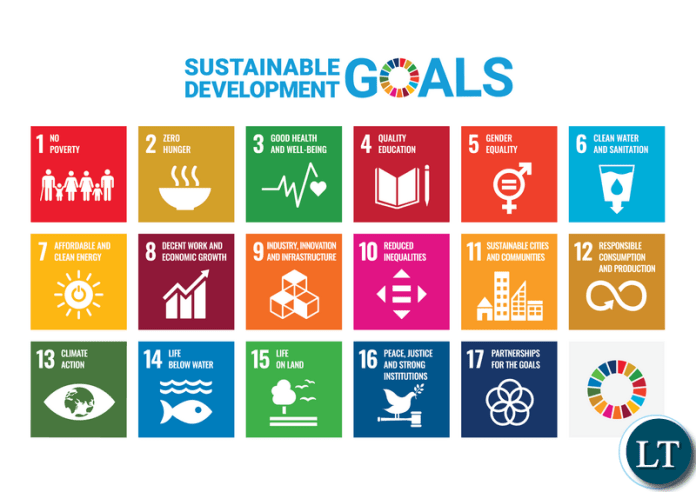What is Corruption?
Corruption is the abuse of public or corporate office for personal gain. Corruption occurs in all countries and has existed throughout human history.
How Does Corruption Affect Society?
The effect that corruption has on society is the following:
- Lower levels of economic growth
- Higher rates of poverty
- Less investment
- Lower public policy effectiveness
- Increased pollution and natural resource depletion
- Poorer infrastructure
- Resource misallocation
- Concentration of wealth in the hands of a few
Reduction of corruption is fundamental to achieving the United Nations Sustainable Development Goals.
What are the Types of Corruption?
Corruption occurs at different scales:
- Petty Corruption – This occurs at the implementation stage of public services when public officials interact with the public, for example in registration offices and police stations.
- Grand Corruption – This occurs at the highest levels of government and requires significant subversion of the political, legal, and economic systems. It exists where there is inadequate policing of corruption and the state is authoritarian in nature.
- Systemic Corruption – A situation when corruption is an integral part of a state’s economic, social, and political system, and where most people have no alternatives to dealing with corrupt officials.
Systemic corruption thrives where the following exist: - Lack of transparency
- Low pay and poverty
- Discretionary powers
- A culture of impunity
Corruption can be separated into two forms:
- Legal corruption – This is corruption that is considered within the limits of the law. It can be maintained by the capture of the state by the interests of a well-connected elite. It has the same undesirable effects as illegal corruption.
- Illegal corruption – This is corruption that is against the laws of the nation and should normally be prosecuted in a court of law.
Fighting Corruption
Three aspects have been identified that are crucial in the successful fight against corruption:
Institution strengthening
Corruption can only be fought and controlled by strengthening institutions and upholding the rule of law. Strengthening the integrity, openness, and credibility of government institutions and the policy-making process should be a priority for the government.
Institution strengthening includes:
Accountability
Transparency
Simplification of operations to reduce errors and opportunities to conceal corruption
Fundamental reforms to change attitudes and beliefs of those that work in the institutions
Anti-corruption agencies must command the respect of the public and be credible, transparent, and fearless. They must be subject to review by the media and civil society and have political independence.
National anti-corruption strategy
This shall promote the participation of society and reflect the principles of the rule of law, proper management of public affairs and public property, integrity, transparency, and accountability. It needs to be incorporated within the broader national development initiatives.
Political will and leadership
This is essential for sending a clear signal that there is a commitment to challenge corruption.
Leaders need to commit time, effort, and political capital to achieve change.
The emergence of transformational leadership – Through the strength of their vision and personality, transformational leaders are able to inspire followers to change expectations, perceptions, and motivations to work towards common goals. This is based on the leader’s ability to make change through example and articulation of an energizing vision and challenging goals. Transformational leaders act for the common good and against self-interest.
Nothing matters more than quality leadership.
Who are the Stakeholders?
The People of Zambia
The Executive
The Judiciary
The Legislature
The Police Service
Civil Servants
The Anti-Corruption Commission
The Media
Civic Organisations
Recommendations and Timescales for Implementation of Anti-Corruption Policies
- Create true and meaningful independence of the Legislature, Executive, and Judiciary branches of government as a means of limiting grand corruption. This will result in a reduction of Executive power. (5 years)
- Make independent of the Executive the appointing authority for Judges, Civil Servants, Director of Public Prosecutions, Anti-Corruption Commission, Auditor General. (5 years)
- Increase transparency and accountability in government institutions e.g., of government officials’ emoluments and declaration of assets. (1 year)
- Provide strong and visible leadership by the Executive against corruption. (1 year)
- Remove the Executive from direct operations of ministries and retain only the policy formation function under direct control of the Executive. (1 year)
- Use digital technology techniques to prevent corruption. (2 years)
- Give results-based financial incentives for Anti-Corruption Commission officials to reduce corruption. (2 years)
- Establish a whistleblowing hotline for corruption reporting with financial incentives to whistleblowers. (1 year)
By Dr. Roy Moobola


HH is a demagogue President and a thief…HH IS THE MOST CORRUPT PRESIDENT TO HAVE RULED ZAMBIA…fact
So Gullible praise singers think when HH goes to the IMF and World Bank to beg for handouts he is begging for the country ..NO…HH IS BEGGING FOR HIMSELF AND HIS CLIQUE OF THIEVES USING ZAMBIA AS A COLLATERAL
When is kapuswe being reinstated as you predicted ????
…………
The scurage afflicting black people that breeds all malise is……….
The readlness to discard and ignore mandane every day procedural rules………..
Like using your phone while at work……or obaying speed limit……..or obaying no parking zones…….
Simple rules like that……all races have people who overlook them, but black people are more frequently breaking them per head of population.
Maybe it is in our genes……..???
Well articulated Roy but does HH have what it takes to implement what you’ve put forth? NO! And unfortunately he thinks he with a few praise singers can win against the collective wisdom and will of Zambians. He’s already lost, we’re just waiting for his term to finish. Bye bye Gloria
Although I didn’t vote in the last elections I am extremely disappointed that HH ( I don’t like him but I used admire) has turned out to be just another Charley come lately.
Imwe people, how many times am I going to tell you we have a fraud for president?
You see now!